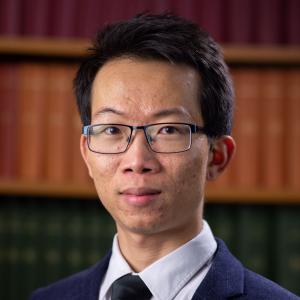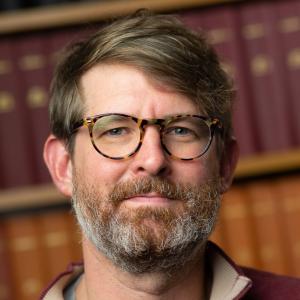Phase-locked stimulation for modulating brain rhythms during wakefulness and sleep in Parkinson’s
Project
Phase-locked stimulation for modulating brain rhythms during wakefulness and sleep in Parkinson’s
In Parkinson’s disease, abnormal brain rhythms - such as elevated beta waves and disrupted slow waves - contribute to movement and sleep problems. Phase-locked Deep Brain Stimulation holds promise for correcting these brain activity patterns by timing stimulation to specific phases of rhythms. This studentship project will explore how phase-locked Deep Brain Stimulation can improve motor function and sleep in people with Parkinson’s, moving toward personalised brain stimulation therapies.
The aim of this PhD project is to determine how modulating abnormal brain rhythms with phase-locked Deep Brain Stimulation (DBS) can improve movement and sleep symptoms in people with Parkinson’s. The research will combine real-time brain signal processing with closed-loop stimulation to target beta rhythms during wakefulness and slow-wave activity during sleep. The studentship holder will work with people with Parkinson’s who have already received DBS, develop stimulation protocols using a computer-in-the-loop system, and help build software interfaces for implantable devices. Through collaboration with clinical and engineering teams, the project seeks to advance understanding of how brain rhythms relate to behaviour and how neuromodulation therapies can be better personalised.
The project will take place in the Brain Network Dynamics Unit of the Nuffield Department of Clinical Neurosciences and in the Medical Research Council Centre of Research Excellence in Restorative Neural Dynamics (MRC CoRE RND). Students will benefit from the extensive interdisciplinary skills training and personalised career development opportunities available within the Unit and the MRC CoRE RND. Students will receive specialised training in their areas of project research (see below) as well as, for example, in the translation and commercialisation of research, best practice in Open Science, and how to effectively involve and engage patients and the public with research.
You will receive advanced training in human neurophysiology, including recording and real-time processing of signals from within and outside the brain. You will gain hands-on experience with closed-loop brain stimulation systems and work directly with people with Parkinson’s, learning clinical research methods, behavioural testing, and sleep quantification. You will also be given opportunities to build skills in time-series analysis, machine learning, and software development for neurotechnology, including designing software interfaces for implantable devices.
This four-year Ph.D. (D.Phil.) studentship offers three years of full-time tuition fees at the Home rate, and four years of non-taxable stipend at the full-time UKRI rate (including any uplifts announced). Both Home students and International students are eligible to receive this funding package. Please see further details about MRC/UKRI studentships and updated guidance regarding Home and International eligibility. Successful offer-holders who have applied by the December deadline may also be considered for other University of Oxford scholarships.
Interested candidates should possess, or expect to receive, a 1st class or upper 2nd class degree (or equivalent) in a related scientific discipline, e.g. physical sciences, medicine, computer science, engineering or mathematics. Previous experience in neuroscience research is highly desirable.
Candidates must contact the lead project supervisor before submitting an application. To find out more about this studentship, the research project, and the application process, please contact Professor Huiling Tan by email on huiling.tan@ndcn.ox.ac.uk.
To be considered for this studentship, please submit an application for admission to the D.Phil. in Clinical Neurosciences at the Nuffield Department of Clinical Neurosciences (course code RD_CU1), following the guidance for applications to this course. On the application form, in the section headed ‘Departmental Studentship Applications’, please indicate that you are applying for a studentship and enter the reference code “26NDCN01MRC” into the funding tab.
The closing date for applications is 12.00 midday UK time on Tuesday 2nd December 2025.
Opening in November 2025, the MRC CoRE RND is an exciting team science enterprise that is focused on harnessing the moment-to-moment interactions between nerve cells (‘neural dynamics’) to transform medical device-based therapy for brain conditions. The MRC CoRE RND incorporates discovery research and translational research aligned to empirical neuroscience, computational neuroscience, experimental medicine, and biomedical engineering. The MRC CoRE RND is exceptionally collaborative, involving partners in academia, neurotechnology industry, research charities, and clinical services. It will champion values supporting a positive research culture.
Supervisors
Applications are invited from both Home students and International students to join a multidisciplinary team of researchers studying how phase-locked Deep Brain Stimulation can be used to modulate pathological brain rhythms during wakefulness and sleep in Parkinson’s disease. This studentship is available from the start of academic year 2026/27, is for 4 years, and will be co-supervised by Professor Huiling Tan, Dr Shenghong He, and Professor Tim Denison at the MRC Centre of Research Excellence in Restorative Neural Dynamics.


